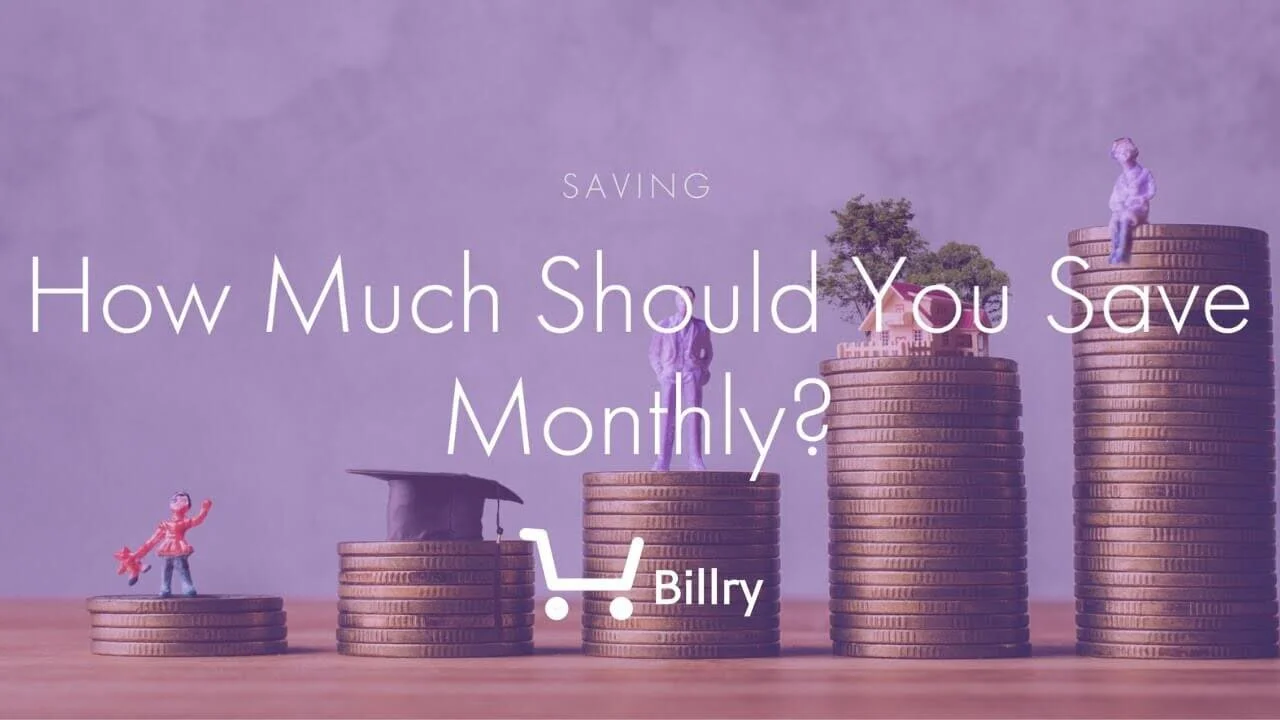How to Save for a Downpayment is Key to Your Homeowner Goals
One of the biggest challenges for would-be homeowners is saving up a downpayment. A downpayment is basically always required for those who wish to buy a home. However, it's hard to put such a large amount of money aside in savings. You need to plan carefully to save up this kind of money. You also need to stick to your financial goals over time.
Fortunately, there are many things you can do that make it easier to save for a downpayment. There are also many resources available the make saving up funds for buying a home easier. If you're ready to get started, it's time to be informed. Set money-saving goals and pursue them. Homeownership is a real possibility as long as you put the effort in.
It may take you time to save up a down payment. However, once you do you'll be able to buy a home of your own!
Why Should I Save For a Downpayment?
A down payment is essential for owning a home. In order to be a homeowner, you need to have money to put forward.
There are many advantages to owning a home. Owning a home is just generally good for your finances. You might not even be aware of all of the great advantages that homeownership offers. However, it's important that you do know what these advantages are. By understanding the advantages of homeownership, you can motivate yourself to become a homeowner.
Before you can own a home, you of course need the down payment. The following are some of the biggest advantages of saving for a downpayment to own a home:
1. You Stop Spending Money on Rent
When you rent, you don't get much back for the rent you pay. When you pay off a mortgage, you accumulate equity in a property.
2. You Have a Valuable Hedge Against Inflation
Did you know that real estate tends to go up in value faster than the inflation rate? Therefore, owning a home is a hedge against inflation. When you put money into a home, you are unlikely to lose any of the value because of inflation.
3. You Enjoy the Benefits of Equity
Equity in a property is a huge benefit. It helps you to secure loans. It also contributes to your net worth.
4. You Boost Your Credit
Have you ever noticed how creditors always ask if you own or rent? Owning a home always looks better than renting. Owning a home shows financial stability. Therefore, homeownership can contribute to a stronger credit score.
Steps to Succeeding In Saving For a Down Payment
While there are many benefits to saving a down payment, it's not always easy. Putting money aside for savings is never easy. Obviously, we all have things we want to spend our money on. Saving a down payment takes discipline and persistence. You're not going to have your entire down payment saved up quickly.
However, you can do it if you create a plan. You can go through the following eight steps to save up your down payment. Going through each of these steps will contribute to your down payment savings.
Do the Math
The number one thing you need to do is calculate your savings. Decide upfront how much you want to spend on a home. Once you know how expensive a home you want, you can estimate your future down payment.
It's best to assume that you'll pay around 10% in your downpayment. Sometimes, it's possible to find a mortgage deal with a 5% down payment. However, the more money you put down, the less the interest costs will be.
This means that a 10% down payment is probably better financially. When you save for a downpayment, assume you'll put 10% down. The average home value in the United States is $247,084. A 10% down payment for such a home would be roughly $25,000.
This is a lot of money to save up. However, you need to save up around this much to buy a decent property in many parts of the US.
Once you know how much you need to save, figure out when you want to buy a home. If you want to buy a $250,000 home in five years and you'll put 10% down, you need to save $5,000 per year.
Have a Clear Goal In Mind
Setting clear goals is important. You need to envision what you want. Financial success is all about achieving short term financial goals. It's also about setting long term financial goals. Short term financial goals involve what you want to save in the next few months. Long term financial projects include saving a down payment to buy a home.
Homeownership should definitely be a long term financial goals. This way, you won't have to continue paying rent indefinitely. But you need to set a clear goal. Determine your goals depending on what you want as well as what your income level is. In any case, make sure you set time aside to consider what you want. This will help you to achieve overall satisfaction regarding your finances.
Don't Be Unrealistic
Set Realistic Financial Goals. The Goalry Mall Is Here to Help.
Too many consumers make the big mistake of setting money saving goals that just aren't realistic. Setting unrealistic goals is an easy way to get discouraged. When you save for a downpayment, you need to consider your possibilities.
Consider factors like your income level. You won't be able to save $25,000 in only two years if you are only making $50,000 per year.
Consumers are often unrealistic regarding how much they can cut spending. You need to have money available to put toward necessities. You also need to allow yourself some enjoyment and luxuries.
You'll get discouraged if you cut all spending on entertainment from your budget. Cut spending, but not excessively.
Give yourself a break now and then. No matter how disciplined you are, you can't cut all spending on entertainment and enjoyment or you will quickly become discouraged.
Prioritize Your Savings
When you save for a downpayment, it's a big job. It's really something you should be focusing on almost exclusively. Don't make the mistake of trying to save for too many goals at once. If you decide to save for a downpayment, you really shouldn't be saving for much else.
It's possible that you have numerous large purchases you want to make. Obviously, you're also thinking about retirement. However, prioritizing is important before you own a home. Remember that owning a home benefits you financially long term. You won't throw away money to rent every month anymore. This means you'll improve your net worth over time.
Make saving for a down payment your priority. Otherwise, you might struggle to put enough money aside every month. While you're saving for a down payment, it's probably good to stop putting a lot of funds toward your retirement and other long term savings goals.
Set a Budget For Yourself
A budget is very important when you save for a downpayment. With a budget, you track your earnings and your spending. When you set a budget, you make careful plans. Without a budget, you're not putting enough thought into the money you spend every month. A budget helps you to work toward your goals with every week and month that goes by.
It's fortunately very easy to set a budget. When you set a budget, you figure out how much money you make every month. Then, you figure out how much money you're spending. You identify your necessary expenses every month. You also identify where you're spending money that you shouldn't be. You minimize your spending. This helps you stretch your dollar and get more out of your paycheck.
Set a budget. Know your income and know where that income is going. Figure out exactly how much you'll put toward your down payment every month. Then, reevaluate your budget once in a while. This is important to achieving an optimum budget as things come up over time.
Find Ways to Increase Your Income
Whenever you're saving for a down payment, try to earn more money. The more money you earn, the easier it will be to save your down payment. Can you take on a second job? Can you start a side business? Can you work more hours for more pay at your current job? If you do these things, you have more income to put toward your down payment.
Brainstorm all the ways you can bring your income up. Hopefully, you have a lot of flexibility regarding your income. If you can't take on a side job, maybe you can get a new job that pays more.
Take Advantage of Any Unexpected Funds That Come In
Consumers sometimes experience financial windfalls. When this happens to you, it's important to capitalize on it. If you get a raise, try to put all of your increased income into your down payment fund. If you get a bonus or a tax refund, put it all toward your down payment. This is a great way to save up your down payment more quickly.
Avoid the temptation to spend new funds that come in right away. If you can avoid spending these funds, you might be able to drastically increase your down payment fund. Over the long term, this will lead to more financial success.
Build Your Credit at the Same Time
The down payment is not the only obstacle to homeownership. Credit score requirements can also be an obstacle. That's why it's so important to improve your credit. A homeowner needs to have a decent credit score.
You won't be approved for a mortgage loan without decent credit. The better your credit is, the less money you'll have to put down on a home. If your credit is very strong, you may be approved for a mortgage after only putting down 5% of the home value. You can take a look at today’s mortgage rates down below:
Mistakes to Avoid
Unfortunately, consumers sometimes make mistakes when they're saving for a down payment. Mistakes can slow you down or compromise your chances of owning a home. The following are some of the most common mistakes to avoid when you want to save for a downpayment.
Getting Distracted
The biggest mistake is to get distracted. You need to stay focused over time to succeed in saving up a down payment. Don't let yourself get distracted by other projects that take up a lot of your savings.
Breaking Your Budget
A budget is useless if you don't stick with it. Have the discipline to follow your budget until your down payment savings are complete.
Taking on New Debts
If you want to buy a home, you should avoid getting into additional debt. Once you start saving up your down payment, stop taking out new loans, or accumulating additional credit card debt.
Finally,
Now that you know what to do to save for a downpayment, you can get started! The sooner you get started, the sooner you can own your own home. You just need to put some effort into it. You also need to be committed over time. Homes are valuable assets. Downpayments generally need to be at least 5% of the value of the home in question. For a $200,000 home, a 5% down payment would be $10,000. This is a good chunk of money. You may not be able to set that kind of money aside overnight.
It's definitely challenging to set aside money to save for a downpayment. However, once you do you are much more attractive to mortgage lenders. If you analyze your financial situation and create a savings strategy, you can do it! Make the dream of homeownership a reality as soon as possible. Start saving for your down payment now.










